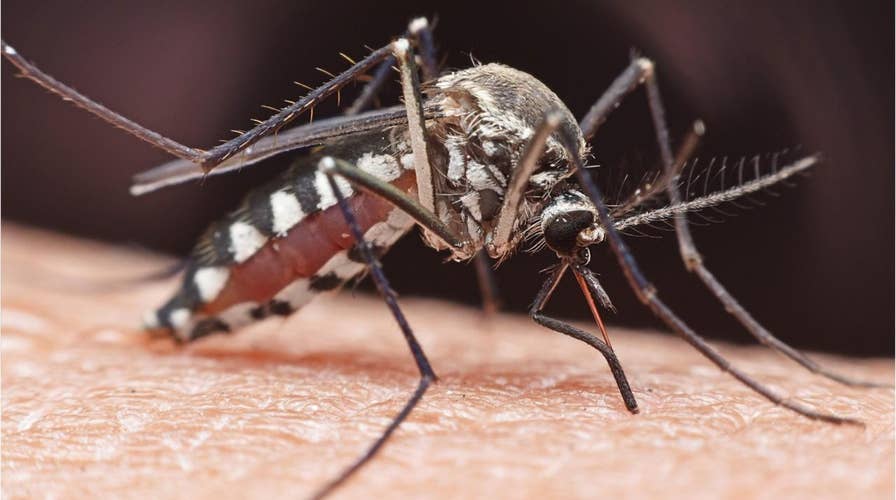How to keep mosquitoes away this summer
Hot and humid weather brings out those pesky mosquitoes. Here are a few simple tips to live a mosquito-free summer.
Arizona is leading the country this year in terms of West Nile virus deaths, according to a recent tally from the Centers for Disease Control and Prevention (CDC).
As of Oct. 8, 16 of the 35 nationwide West Nile virus-linked deaths this year had been reported in the Grand Canyon State. All but one in the state have been reported in Maricopa County, according to the Arizona Republic.
"For whatever reason, Maricopa County seems to be the West Nile virus hot spot this season, and we honestly don't know why," Dr. Rebecca Sunenshine, the Maricopa County Public Health Department's medical director for disease control, told the outlet.
WHAT IS WEST NILE VIRUS? 3 THINGS TO KNOW ABOUT THE MOSQUITIO-SPREAD AILMENT
"It is by far the most we've seen in the last decade," Sunenshine said. "We're so dry and you don't think of us having a heavy mosquito population. Something is going on, and we're working with the CDC to figure it out."
Officials are studying bird and mosquito populations, as well as rainfall patterns and local ecology, to determine what’s behind the increase.
In 2018, Arizona saw six deaths from West Nile virus, according to the Arizona Republic.
Mosquitoes are largely to blame for spreading West Nile virus. The insects become infected when they feed on infected birds. The virus can spread to humans if they’re bitten by an infected mosquito, per the CDC.
Most people who are infected do not experience symptoms, the CDC warns. However, a small percentage of people – roughly 1 in 5 – develop a fever and may additionally experience headaches, body aches, vomiting, diarrhea, or a rash, among other signs of the virus. Even rarer, about 1 in 150 people who are infected with West Nile virus can develop a serious illness – such as inflammation of the spinal cord or brain – the CDC said.
There is no vaccine or specific antiviral treatment to treat or prevent the virus. Those infected can take over the counter pain and fever reducers to alleviate symptoms. In severe cases, however, “patients often need to be hospitalized to receive supportive treatment, such as intravenous fluids, pain medication, and nursing care,” according to the CDC.
The Mayo Clinic warns people who are older, as well as those with pre-existing medical conditions, are the most susceptible to the virus.




















